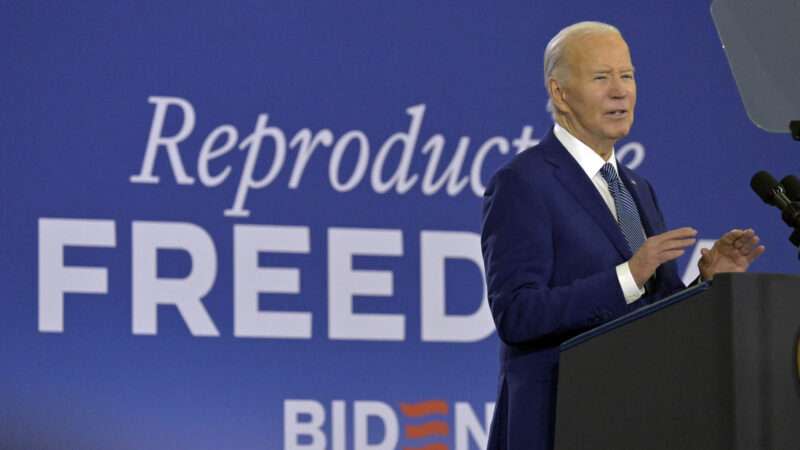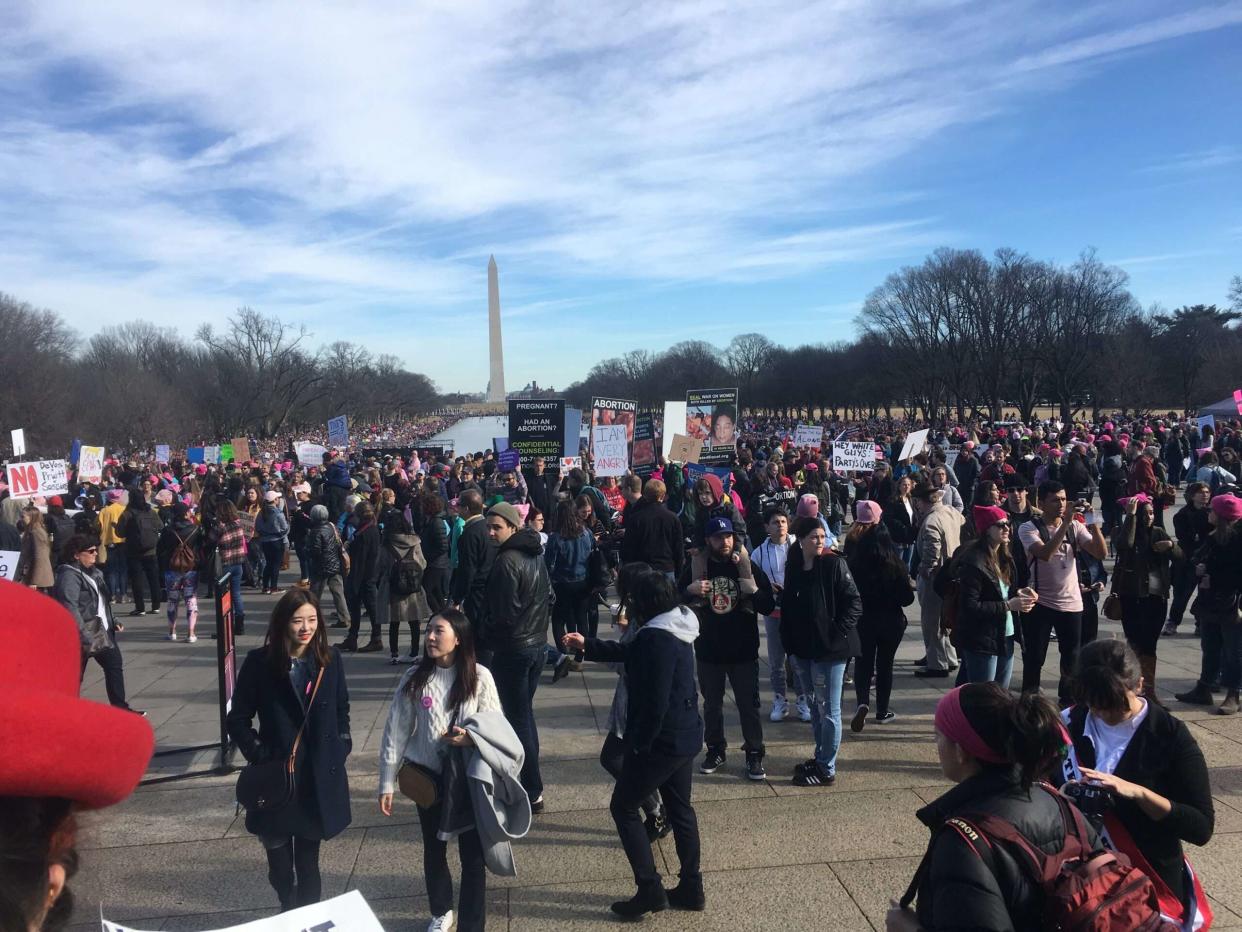A Cruel and Risky Abortion Ban Versus an Overreaching Interpretation of Federal Law

How at risk must a pregnant woman be before she's allowed to get an abortion? That's the issue underlying a case before the U.S. Supreme Court today, though the central question before the court is whether a 1986 federal law called the Emergency Medical Treatment and Labor Act (EMTALA) preempts state abortion bans like one passed in Idaho in 2020.
The federal government says that under the EMTALA, hospitals have a duty to provide abortions to patients whose health is threatened, even in states where abortion bans only leave exceptions for life-threatening emergencies.
Cruel and Dangerous Bans…
Abortion bans with no health exception are horrible for women and for medical professionals. Oregon doctor Jennifer Lincoln referred to them as "not dead enough yet" rules. If a pregnant woman shows up at a doctor's office or hospital with serious and potentially-but-not-yet life-threatening complications, doctors' hands are tied.
Under such a paradigm, performing an abortion is illegal until it's certain a woman's life itself is in jeopardy. This leaves women in the terrible position of having to wait while their health worsens, knowing all the while that a (possibly much-wanted) pregnancy cannot continue and also that the longer they wait, the greater the chance of damage to their reproductive organs or other body parts. And steep penalties for performing an abortion outside of life-threatening emergencies may lead some doctors or health systems to be overly cautious from a liability perspective, further putting pregnant women's health at risk.
Meanwhile, doctors are put in the position of having to either send women in such circumstances out of state if possible or simply watch and wait while their patient's condition deteriorates.
Abortion bans without health exceptions are cruel and dangerous. They put both pregnant women and health care professionals in an impossible bind, trying to decide just how bad a pregnant woman's health must be before an abortion is legally possible.
But does that mean the Biden administration can simply declare them void?
Overreaching Correction
That's essentially what it's done in invoking the EMTALA, a law that requires hospitals that accept Medicaid and Medicare to provide stabilizing care to people undergoing medical emergencies. The Department of Health and Human Services (HHS) says that when a woman presents at a hospital with a health emergency and the "stabilizing treatment" needed is an abortion, hospital staff must perform an abortion, even if state law may say otherwise.
As much as I agree with the Biden administration on the problems of abortion bans without health exceptions, the way the administration has gone about trying to remedy this makes me uncomfortable. It seems bad on principle and bad for the precedence it sets.
In general, we want policy to be set by voters and/or their elected representatives. We shouldn't have national policy being set by bureaucrats interpreting decades-old laws in novel ways to backdoor-in the preferred policy goals of whatever an administration is in power.
People in states without health exceptions could (in some states at least) try to change the law through a ballot initiative. Their lawmakers could pass a measure requiring such an exception. Or Congress could pass a law explicitly requiring what the administration is interpreting the EMTALA to already mean. HHS simply declaring that federal law already means doctors must perform abortions in health-threatening circumstances might be the most efficient way to accomplish this goal, but it's not the way that U.S. policy should be set.
Today's Court Case
Today's SCOTUS case stems from Idaho, where performing an abortion is a criminal act unless a doctor determines "that the abortion was necessary to prevent the death of the pregnant woman" or the pregnancy is the result of a reported rape or incest. Idaho's ban, passed in 2020, was triggered into law when the Supreme Court overturned Roe v. Wade in 2022.
The Biden Administration says Idaho's law conflicts with the EMTALA and, under the doctrine of preemption, the federal law should win out.
But Idaho argues that its abortion law doesn't conflict with the EMTALA, since (among other reasons) the EMTALA expressly states that "the provisions of this section do not preempt any State or local law requirement, except to the extent that the requirement directly conflicts with a requirement of this section."
In 2022, the Biden administration sued to stop Idaho's law from taking effect. Initially, a U.S. District Court issued a temporary injunction against enforcement of the ban. But a 3-judge panel of the U.S. Court of Appeals for the 9th Circuit agreed with Idaho that the EMTALA did not conflict with Idaho law.
"EMTALA was enacted to ensure that the poor and uninsured receive emergency medical care at hospitals receiving Medicare reimbursement. It provides certain procedures that hospitals must follow but does not set standards of care or specifically mandate that certain procedures, such as abortion, be offered," wrote the appellate judges. "But even assuming that EMTALA did require abortions in certain, limited circumstances, it would not require abortions that are punishable by [Idaho's abortion ban]. So it still would not be impossible to comply with both EMTALA and [Idaho law]."
The case made it to the Supreme Court, which in January allowed the law to take effect as the case plays out.
The Court will now decide whether the EMTALA preempts state laws like Idaho's abortion ban.
More Sex & Tech News
• The TikTok divestiture-or-ban bill I covered in this newsletter on Monday has now passed the U.S. Senate and is expected to be signed by President Joe Biden. It looks like the courts are going to have to save us from this one now.
• Former President Donald Trump tried to ban TikTok during his presidency. Now that Democrats are for it, he's against it, of course.
• AI-written police reports—what could go wrong?
Today's Image

The post A Cruel and Risky Abortion Ban Versus an Overreaching Interpretation of Federal Law appeared first on Reason.com.
